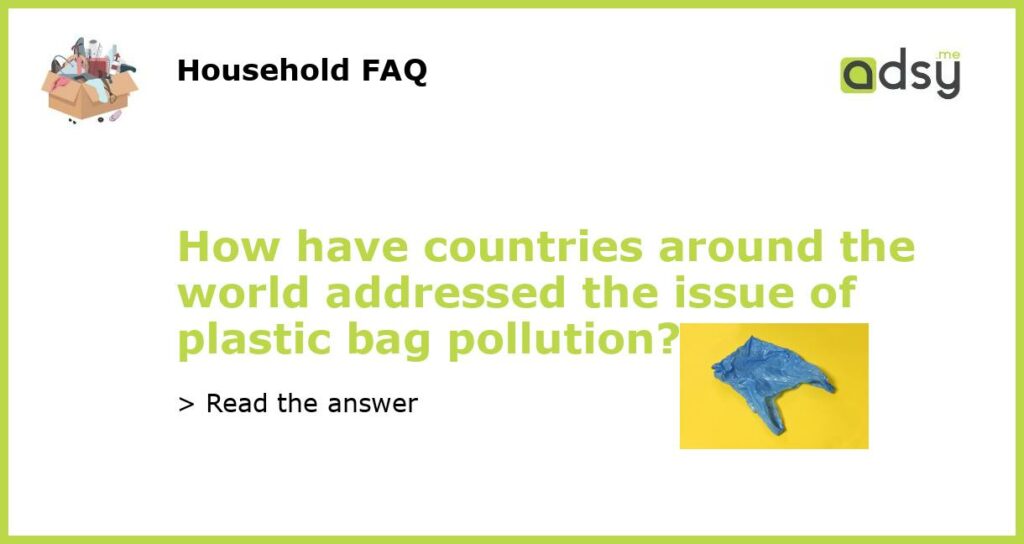The Global Plastic Bag Pollution Crisis
The issue of plastic pollution, more specifically plastic bag pollution, is one that has plagued the world for many years. Plastic bags are a convenient and efficient way to carry goods, but they have devastating effects on the environment. They are non-biodegradable, which means they never decompose, and they end up littering waterways, landfills and oceans. Countries all over the world have begun to take steps to address this issue and reduce plastic bag pollution in their environment.
The Countries That Are Leading the Way
Several countries have taken the lead in addressing plastic bag pollution by implementing bans, taxes or restrictions on single-use plastic bags. In 2002, Bangladesh became the first country to ban plastic bags as an attempt to reduce the adverse impact on the environment. Kenya followed suit in 2017 by introducing one of the world’s toughest plastic bag bans with strict penalties including heavy fines and imprisonment for producing, selling and using plastic bags. Rwanda, on the other hand, fully banned plastic bags and prioritized the use of eco-friendly alternatives like paper bags or reusable bags which are distributed at retail outlets.
The Benefits of Plastic Bag Bans and Restrictions
Plastic bag bans and restrictions have far-reaching benefits for the environment. The reduction in plastic bag use means there will be less plastic waste in oceans, landfills and rivers, which leads to less pollution. Additionally, it reduces the amount of energy needed to produce plastic bags. Using eco-friendly alternatives like reusable bags or paper bags leads to less energy consumption as they require less energy to produce. Furthermore, these bans create awareness among the public who would then be encouraged to use sustainable options in their everyday lives.
Challenges to Addressing Plastic Bag Pollution
Implementing a plastic bag ban or restrictions can be difficult. The plastic industry is huge, and there may be opposition to such bans and restrictions which may be seen as a threat to employment opportunities. Additionally, some countries and regions may not have the proper infrastructure to handle alternative bags, especially those that might be biodegradable. This means alternative measures need to be put in place, such as recycling programs to ensure sustainable waste management.
Conclusion: A Shared Responsibility
Addressing plastic bag pollution is a shared responsibility. Governments need to enact policies and regulations that will help reduce the use of plastic bags. But individuals also have a role to play by adopting sustainable habits like using reusable bags and disposing of plastic bags responsibly. It is vital to reduce the amount of plastic waste and pollution in the environment to ensure a sustainable future.






